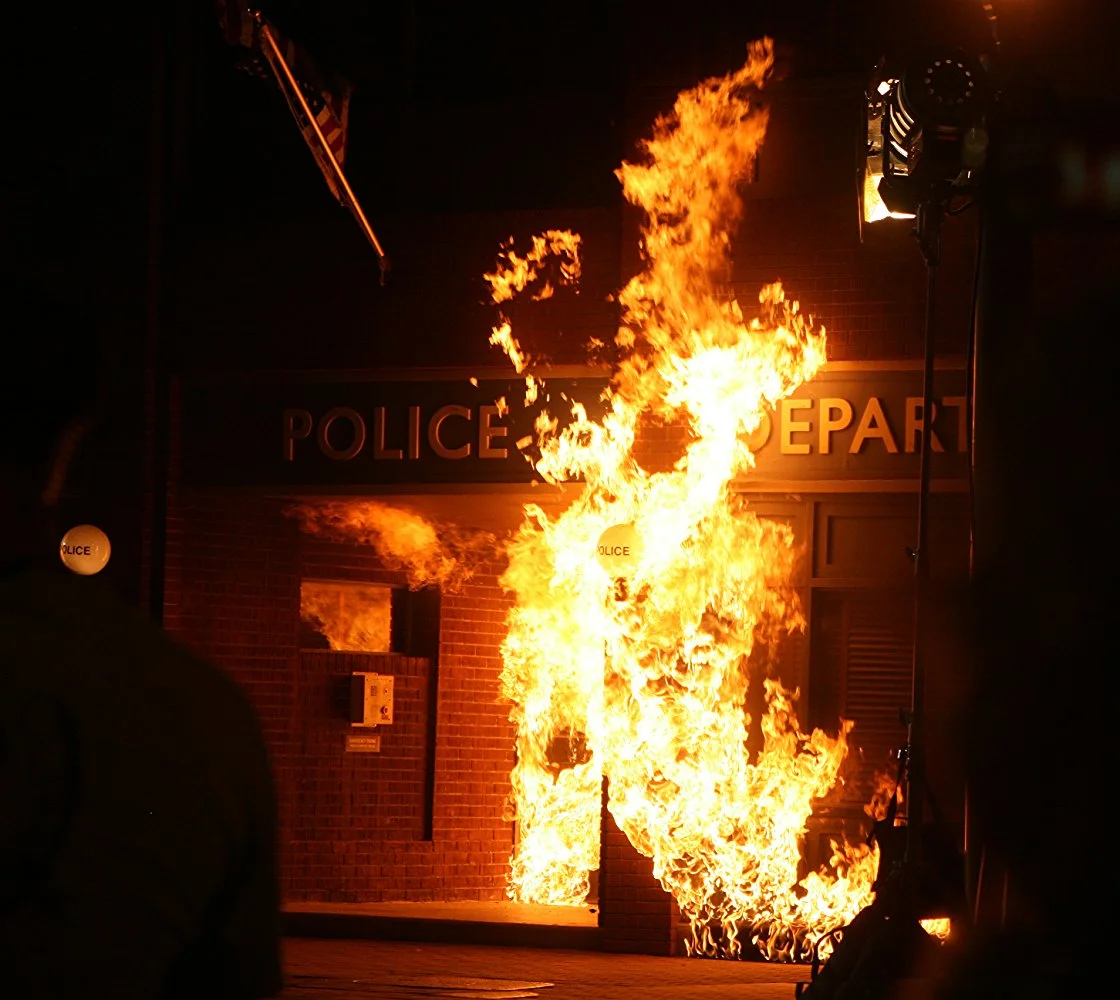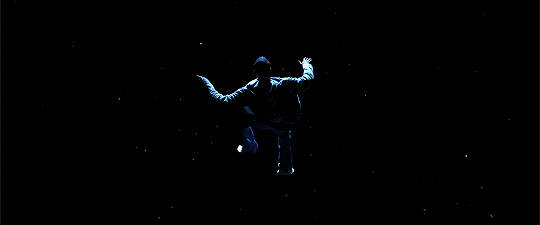The Final Cut: A Closer Look at the 2018 Oscar Nominations for Best Picture, Part 1 of 3
Awards season is finally upon us and, following a remarkably strong year of film production, the buzz surrounding the Oscars seems to be constant. Critics are incessantly praising their picks, debates with friends are ensuing and fans are defending their choices to the end. With such extraordinary films all being released in the same year, it is only logical that it would come to this. Should we choose the coming-of-age film or the historical drama? The social critique or the fantasy world? And so, with these tiffs ensuing more and more each day, we at ST.ART decided to take action. During the weeks leading up to the Academy Awards, each of the films nominated for the 'Best Picture' category shall be discussed by an avid proponent who believes it should win the prestigious award.
The question is simple, why should your film win the Oscar for 'Best Picture'?
All copyright belongs to Fox Searchlight
Guillermo del Toro's The Shape of Water
Written by Tessa Lillis
Guillermo del Toro's uniquely beautiful The Shape of Water has brought something completely unexpected to the Oscar pool, something that expertly encompasses the sensations of fear, acceptance and, most of all, love. When a romance film is considered in the running, it is typically regarded as cliché. There has been a cumbersome amount of romance films made throughout the decades and this has gradually led to a public perception of these films being cheap. However, del Toro's genius is that his work isn't cheesy at all but is instead one of the most moving romance films I have ever seen, all in the midst of a Cold War experimental laboratory with a mute female janitor and a human-like amphibian creature. Intriguing, isn't it?
Del Toro's expertise of imagination in The Shape of Water is admirably accompanied with his innate skill as a filmmaker, delicately yet instinctively intertwining every aspect of the film to successfully further the themes and narrative. From the mute woman (played by Sally Hawkins) to her African-American best friend (Octavia Spencer), the closeted homosexual (Richard Jenkins) to the amphibian man (Doug Jones), the audience is reminded with absolute clarity what del Toro's overarching message is: to understand and embrace the 'other'. This message especially resonates today, what with the fear associated with the 'other' religion, gender, race and more. The music is a particular element that I found to be absolutely phenomenal, composed by the sensational Alexandre Desplat with sounds reminiscent of French cafes, beautiful notes that embrace the purity and beauty found in love with this otherness.
All copyright belongs to Fox Searchlight
Another particularly moving aspect of the film is the recurrence of homages to classic cinema which is integrated into the narrative. It feels as if the film is communicating to the audience del Toro's own private passions, be it imaginative or cinematic, by ultimately constructing a film out of his influences. He himself said: 'I wanted to make a movie in love with love, and in love with cinema'. Through my experience of the film, this love for cinema was deeply understood and felt. The smell of popcorn was in the air, the theatre was packed to the brim and, still, the moment the lights went down Guillermo del Toro completely transported me into his wonderfully bizarre world. This world moved me more than I can say and perfectly articulated the power of cinema, and for that The Shape of Water deserves 'Best Picture'.
Martin McDonagh's Three Billboards
Written by Violet Chaudoir
In order to win the award for 'Best Picture', I firmly believe a film must be challenging, surprising, affecting and, perhaps most importantly, relevant. While I could write an entire review about Three Billboards Outside Ebbing Missouri, directed by Martin McDonagh, I shall settle for discussing why this masterpiece fits my rather demanding criteria. Whoever edited the Three Billboards trailer was indeed cunning. In its 2 minute cut the film seems to be painted as primarily a dark, macabre comedy and indeed the film fits this genre, in part. I left the cinema (on my first viewing) surprisingly drained. I did not expect to be so moved at so many instances, as the sharp wit of the script was threaded into scenes which starkly demonstrate the crushing madness and frustrations of unatoned grief. While the film asks a simple question, whether a mother can ever come to terms, forgive and forget, the death of her daughter, whose life was unforgivably, unexpectedly and brutally cut short, this question unravels to encompass a plethora of issues, violence, domestic abuse, rape, justice, racism, terminal illness and parental relationships, to name a few. Daring to even include such a variety of topics is rare in the Hollywood box office. When associating Three Billboards with these conversations, the film may sound incredibly daunting perhaps even repelling to audiences who haven’t already seen the film. Yet it is fundamental to insist that this film, remarkably, is f**king hilarious, I mean the trailer (below) says it all. While I’ve seen the movie on three separate occasions (one for each billboard) in different parts of the country alongside different audiences, the film didn’t fail to have people barking aloud. It's rude, crude and very much in line with the humour produced by past Blueprint productions, who also created the much loved In Bruges.
While the brushstrokes of this film are broad and all-encompassing, there are several minute and exquisite details placed throughout the film that are unforgettable. Certain scenes, often performed with very little speech involved, are carefully inserted to express in a quiet manner subtle insights into the protagonist's characters, often to show their more tender inclinations in a rather cutthroat community (for those who have already seen the movie - think of the ‘orange juice straw scene’ and I’ll say no more). The film therefore has an ambitious scope, paying attention to both enormous subjects and minuscule moments.
As the competition is high, this movie may not win 'Best Picture'. However I can say with full determination that this film deserves to award some of its actors and actresses. While Frances McDonagh (Mildred) shone in presenting an image of motherhood and ferocious femininity which is usually absent to the cinema screen, nearly every other performance was remarkable, to name Caleb Landry Jones (Red Welby), Sam Rockwell (Dixon), Woody Harrelson (Willoughby), Lucas Hedges (Robbie) and Peter Dinklage (James).
Three Billboards Outside Ebbing Missouri is undeniably a complicated and tough film, presenting a range of topics and long-riddled questions on forgiveness, anger and cruelty, questions left unanswered, to be struggled with by its audiences. However I believe the films unanswerable quality is necessary in an industry where movies are often 'easy-watching' and constructed to enlarge profit margins. Not only does Three Billboards prove that demanding topics can be centre-screen but such topics can be positioned within a genuinely entertaining, engaging framework. The film sets a new benchmark for audiences, pushing us to demand for difficult films to be made, rather than settling for endless sequels. Lastly, and perhaps most importantly for those who’ll be watching the Academy Awards live, at whatever godforsaken hour, if Three Billboards indeed does win 'Best Picture' or 'Best Actress' you can be damn well sure Frances McDonagh will make a roaring, kick-ass speech.
Jordan Peele's Get Out
Written by Ameer Chughtai
Get Out follows the story of Chris Washington (expertly played by Daniel Kaluuya), a young black photographer in New York, who is invited by his white girlfriend Rose Armitage (Allison Williams) to visit her family out of town. From the moment the couple drive into Rose’s family’s expansive estate the situation is uneasy. This goes from the too white pillars, the perfectly manicured grass and the abundance of black servants. From this setting, the film’s most infamous line is said by Rose’s Dad, Dean Armitage (Bradley Whitford). Here, in a clumsy attempt to converse, he states “I would have voted for Obama for a third time if I could”.
However, it would be incorrect to simplify Get Out to a typical political statement, it is undeniably a sharp thriller that keeps you to the edge of your seat as the Armitage estate grows ever more nightmarish. It is within this that Peele “rule bends”, where stark realism is juxtaposed with macabre horror.
While this horror is indelibly tied to the fabric of the film, Get Out defies the concept of a typical horror. It doesn’t try and make you jump in your seat with hollow jump scares, but rather leaves long-lasting scars that keep you up at night. Get Out is a movie of our times, it marks 2017 as a place of political tumult and confusion, both personal and global – and asks us to reflect on whether the “good” we do, is worth doing.









